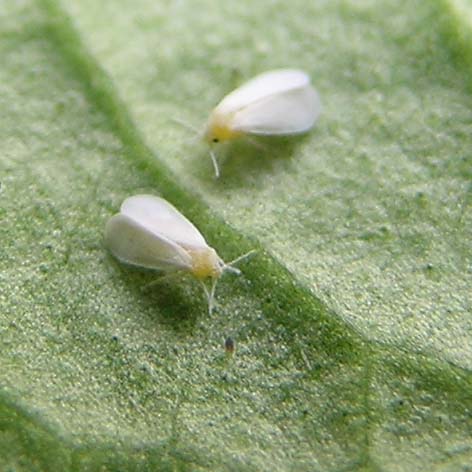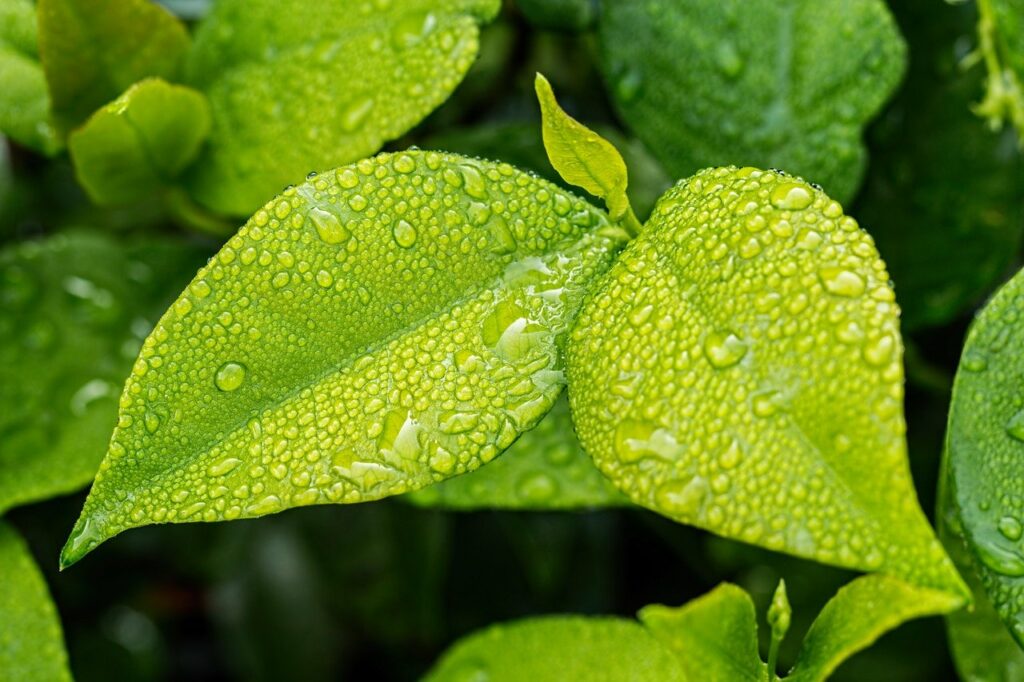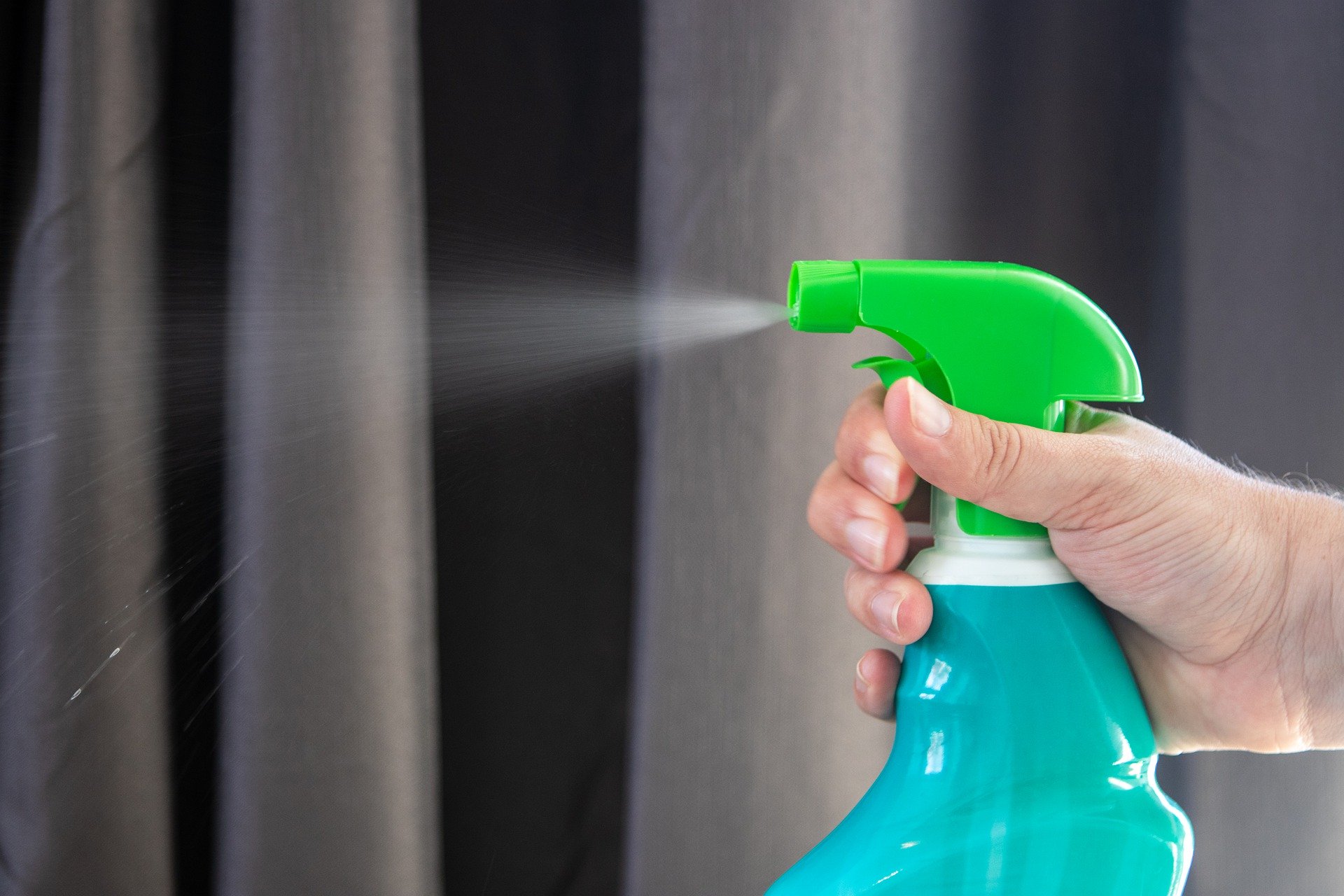Whiteflies are some of the most invasive pests you can have in your garden. They feed on plant sap, depriving your plants of the nutrients they need to survive and thrive. Unfortunately, whiteflies are slowly becoming more resistant to many insecticides, and this is partly the reason why some people choose natural remedies like vinegar. But will vinegar kill whiteflies?
Whiteflies and vinegar — fast facts
- Whiteflies are small and white flying insects. These garden pests are very small, ranging from one to three millimeters. But they can overwhelm your garden with their numbers. You will often see them clustered on the underside of leaves, sucking the nutrients out of your plants. They also produce honeydew, which promotes the development of mold that can eventually kill your plants. In short, whiteflies are bad news for your garden. You should get rid of them immediately.
- You can get rid of whiteflies naturally with vinegar. You can use commercial insecticides such as those containing pyrethrin or spinosad to effectively get rid of these garden pests. But you can also try home remedies like vinegar. Vinegar works against whiteflies because its acidic properties dissolve the protective coating on their bodies. This destruction makes whiteflies vulnerable to dehydration and death. However, you should know how to use vinegar properly. If you are careless, you can also damage your plants.
- Vinegar also has disadvantages in whitefly control. Yes, vinegar will kill whiteflies. But this doesn’t mean that vinegar is the ultimate whitefly control ingredient. It has its disadvantages too. Vinegar is effective only when in direct contact with whiteflies, so you may find it difficult to get rid of whiteflies in the more inaccessible area of your garden and plants. It’s also kind of a short-term solution, so you may have to reapply the vinegar multiple times to keep the whiteflies in check.

How to get rid of whiteflies with vinegar
1. Make a water-vinegar solution
Vinegar can be harmful to plants because it’s highly acidic. If you use pure vinegar on plants, especially on sensitive parts like leaves, your plants can be damaged. Too much vinegar in your garden soil can also hinder the growth of plants because of acid buildup.
Because of these reasons, it’s important to dilute vinegar in water before applying them to your plants. Mix water and vinegar in equal ratios and put the solution in a spray bottle.
2. Use a small amount first on the affected plants
Find the plants that are being infested with whiteflies. And then spray a small amount of your water-vinegar solution on a single leaf. Observe the leaf for 24 to 48 hours. If you notice wilting, yellowing, or some kind of change or reaction in the leaf, add water to your solution to dilute the vinegar further.
But if you don’t see any change or reaction in the leaf, you can proceed in applying the solution to the entire plant.
3. Go all-in
Once you are sure that your plants can tolerate the vinegar in your solution, you can go all-in. Apply a generous amount to your plants, but not to the point where they are completely soaked. Give particular attention to the undersides of leaves because these are the parts where whiteflies like to hide.
4. Reapply the solution every few days
The vinegar will kill the whiteflies. But you may have to use the solution multiple times to effectively control the whitefly population. Repeat the treatment process every few days until you notice that the whitefly infestation is becoming less and less significant. This shows that the treatment process is effective.
5. If you see no improvements, call pest control professionals
If you see no changes in the whitefly infestation, you may want to give up on using vinegar to get rid of the whiteflies naturally. After all, vinegar has limited effectiveness because it needs direct contact with the whiteflies for it to work. It can be very ineffective in serious infestations where the whiteflies are already too spread out to be reached easily by your vinegar solution.
In these cases, consider hiring pest control professionals.

Other natural ways to get rid of whiteflies
- Try neem oil. Neem oil is effective against whiteflies because it coats their bodies, suffocating them or killing them of hunger. You can use neem oil the same way as vinegar. Dilute it in water, test the solution in a small area of the affected plant, and if you see no negative reaction, use the solution on the entire plant. Repeat the treatment process every few days until you see results. Some neem oil products are sold commercially as pesticides, so they may come with instructions on how to use them properly.
- Research more about biological control. Biological control is the use of natural predators to get rid of pests. In the case of whiteflies, the natural predators you should be eyeing are parasitic wasps and ladybeetles. Parasitic wasps are great because they lay their eggs on whiteflies, eventually killing them. And ladybeetles are great because they can eat about 10 eggs of whiteflies a day. You can actually buy these insects in garden supply stores and wildlife retailers — some of which you can find online.
- Remove whiteflies manually with your hands. Natural ingredients like neem oil and vinegar will kill whiteflies just as well as natural predators like parasitic wasps and ladybeetles. But you can’t get any more natural than using only your hands to get rid of whiteflies. Use gloves and a soft cloth to capture the whiteflies and then dunk them in a container with soapy water. If the infested leaves are too infested, consider cutting them off completely.
You can get rid of whiteflies with vinegar
Yes, vinegar will kill whiteflies. Thanks to its acidity, vinegar can destroy the protective coating of whiteflies, eventually killing them. But be careful in using vinegar to get rid of whitefly infestations. It can be harmful to your plants too if you use too much of it.
Make sure to dilute the vinegar in water. And test the resulting solution first on a single leaf of the infested plant before using it on your entire garden.

